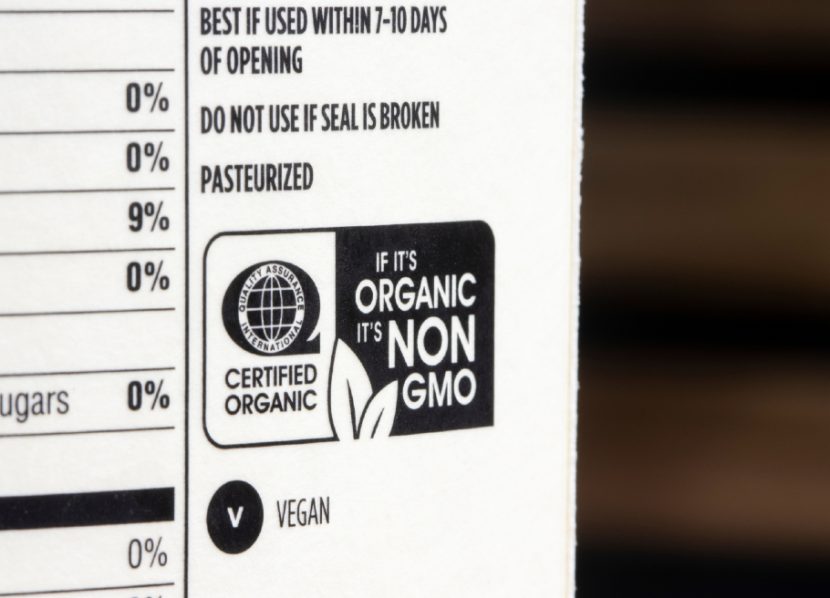Bolstering Your ESG Efforts with Sustainability-Based Certifications
By Lisa Spicka
The food industry is one of the industries most impacted by climate change. Natural disasters and shifting temperatures impact growing crops, and customers now expect businesses to operate from both a social and eco-conscious perspective. As a result, from reducing carbon footprints to eliminating forced labor, Environmental, Social, and Governance (ESG) is increasingly becoming a priority for food companies.
One-third of greenhouse gas emissions are estimated to come from the food industry, and the impacts to climate, deforestation, and food waste are significantly changing how we need to manage food safety risks and compliance in the future. By weaving ESG into the corporate strategy, companies throughout the food industry can demonstrate their commitment to protecting our planet and its citizens. ESG is ultimately expected to become synonymous with health, climate, and affordability.
A formalized strategy is essential to avoid wasting time and money obtaining certifications that do not reflect a company’s core sustainability identity.
Achieving sustainability-based certifications clearly indicates a company’s commitment to its ESG efforts. Generally, certifications should be part of a company’s sustainability or ESG strategic plan, which emerges from benchmarking and materiality assessment insights. This ensures that the sustainability certifications pursued will have the most positive external impacts, align with company branding, and reduce risk.
Types of Sustainability-Based Certifications
Sustainability certifications can cover both product-level certifications and company-level certifications, and exist for dozens of traits such as climate, company ethics, agricultural production methods, human rights, animal welfare, and more. With so many options available, a formalized strategy is essential to avoid wasting time and money obtaining certifications that do not reflect a company’s core sustainability identity.
Certifications to Consider
The following list includes certifications firmly rooted in corporate sustainability. Some certifications, such as organic, have existed since as far back as the 1970s, while others have emerged in the last decade or less in response to some of our planet’s most critical sustainability pressures.
Organic: Organic certification certifies that final products are free from genetically modified organisms (GMOs), irradiation, and the use of sewage sludge and persistent toxic chemicals (e.g., fertilizers and pesticides) in production and handling.
- For products sold as organic in the USA, companies must comply with the United States Department of Agriculture (USDA)’s National Organic Program (NOP). A complete list of accredited certifiers can be found on the USDAs’ Organic INTEGRITY Database.
- Other countries’ organic programs include Canada Organic Regime, European Union Organic, and Ley de Productos Organics (Mexico).
- Additional “varieties” of organic include biodynamic (Demeter) and regenerative (Regenerative Organic Certified (ROC) or Soil Carbon Initiative, Savory Institute). Each certification/certifier has unique traits worth investigating.
Non-GMO: The Non-GMO Project Verified butterfly seal is recognized globally. Verification to the Non-GMO Project Standard represents best practices for GMO avoidance and may include testing of high-risk ingredients in product formulations.
Animal Welfare: Animal welfare is increasingly prioritized globally and demonstrates a company’s commitment to animal husbandry practices. Several standards and certification schemes exist. For example, the NSF Global Animal Wellness Standards (GAWS) standard help companies manage risk through a common, globally applicable approach. Other popular AW-focused programs include Certified Humane and Raised Without Antibiotics. Animal wellness is also incorporated into broader standards that address items such as food safety (Global Food Safety Initiative [GFSI] and Red Tractor ) or regenerative organic (Regenerative Organic Certified).
Safer Chemistry: From food-grade lubricants to equipment cleaning products, chemicals are now being reviewed regarding traceability and sustainability. The EPA’s Safer Choice program and CleanGredients Data Verification are options in this area. The Organic Materials Review Institute (OMRI) certification demonstrates inputs to production and processing are acceptable under USDA organic certification.
Plastic-Neutral: As micro-plastics embed themselves into our food system and body tissues, the use of plastics is increasingly a significant environmental concern. rePurpose is one organization helping address this problem through its certification focusing on plastic recovery, plastic waste collection, plastic footprints, and reduction commitments.
Fair Trade: Fair Trade certification helps spotlight the responsible practices of a business and its products through rigorous social, environmental, and economic standards. Various shades of fair trade certification for products can be obtained through multiple certifiers, including Fair Trade USA, FloCert, FairWild, and Fair Trade America.
Forestry: Responsible forestry management practices certifications help ensure that fiber used in end products is sourced from responsibly managed forests. These are primarily relevant to forestry, paper, and packaging companies. Leading certifications include the Forest Stewardship Council, the Programme for the Endorsement of Forest Certification, and the Sustainable Forest Initiative.
B Corporation: B Corporation (“B Corp”) certification, issued by B Lab, is a company-level certification that distinguishes a company for its social and environmental performance in five areas: workers, governance, community, environment, and customers. It is perhaps the most comprehensive existing company-level sustainability certification. Increasingly recognized by consumers and for many years, it has served as a virtual calling card for networking and relationship building on a B2B basis.
Sustainable Professional Services Certification: This new certification is unique because it is geared towards professional services companies. It addresses responsible social, environmental, governance, and supply chain management and sets specific KPI targets for companies.
ISO 14001 Environmental Management System Standard: This widely recognized ISO standard reflects that companies have responsible environmental management practices, especially around their waste, energy, and water management systems. Many certifiers offer this certification – a full list can be found here.
Circularity, Waste, and Materials Management: Several programs support smarter waste reduction practices, including the TRUE certification, Landfill Free verification, and e-Waste recycling certification, which supports safer recycling and disposal of electronic waste through R2, RIOS™ and e-Stewards certification.
Built Environment Certifications: These certifications recognize sustainability engineering in the “built environments,” such as facilities, offices, and commercial buildings. The most recognized for buildings include the US Green Building Council’s LEED rating system and the International WELL Building Institute’s WELL Standard.
Climate and Carbon Neutral Certifications: These certifications can apply to companies, products, and/or events and include Carbon Neutral and Climate Neutral.
Getting Started with Certification
After determining which certifications are best for your organization and products, the next step is identifying which certification body, or CB, will best fit your company. Companies must usually work with an accredited CB to complete the certification process. The process can involve multiple steps, including a readiness assessment for certification, the application, pre-audit coordination, the audit, results review, applying corrective actions (if applicable), the certification decision, surveillance audits (if applicable), continuous improvement, and certification renewal.
Taking the time to get to know and decide on the CB that is best for your company regarding cost, style, standards, support, and more will help optimize the budget, time, and consumer satisfaction with your sustainability certification.
About the author:
As a sustainability leader in the natural products industry and director of NSF’s Sustainability Consulting group, Lisa Spicka helps clients design and integrate sustainability strategies that address ESG reporting, climate action, and supply chain integrity. Spicka’s sustainability expertise revolves around supply chain sustainability integrity and corporate strategy and reporting, with a deep understanding of food manufacturing operations, organic and food safety regulations, and corporate sustainability. Her prior experience includes global leadership in operations and project management, non-profits, supplier management, and sustainable supply chain development.

-
 FeaturedRisk management
The Cost of a Breach: What a Cyberattack Could Mean for Food Safety Recalls
FeaturedRisk management
The Cost of a Breach: What a Cyberattack Could Mean for Food Safety Recalls
-
 FeaturedRisk management
Securing the Food Chain: How ISO/IEC 27001 Strengthens Cybersecurity
FeaturedRisk management
Securing the Food Chain: How ISO/IEC 27001 Strengthens Cybersecurity
-
 FeaturedRisk management
Revolutionizing Food Safety Training: Breaking Out of the “Check-the-Box” Mentality
FeaturedRisk management
Revolutionizing Food Safety Training: Breaking Out of the “Check-the-Box” Mentality
-
 GFSI Standards
GFSI 2025: Building Trust, Tech-Forward Solutions, and Global Unity in Food Safety
GFSI Standards
GFSI 2025: Building Trust, Tech-Forward Solutions, and Global Unity in Food Safety
-
 FeaturedFood Safety
Integrated Pest Management: Strategies to Protect Your Brand’s Reputation
FeaturedFood Safety
Integrated Pest Management: Strategies to Protect Your Brand’s Reputation
-
 FeaturedFood Safety Culture & Training
No Open Door Policy: Challenges That Impact Pest Control in Food Processing Plants
FeaturedFood Safety Culture & Training
No Open Door Policy: Challenges That Impact Pest Control in Food Processing Plants




